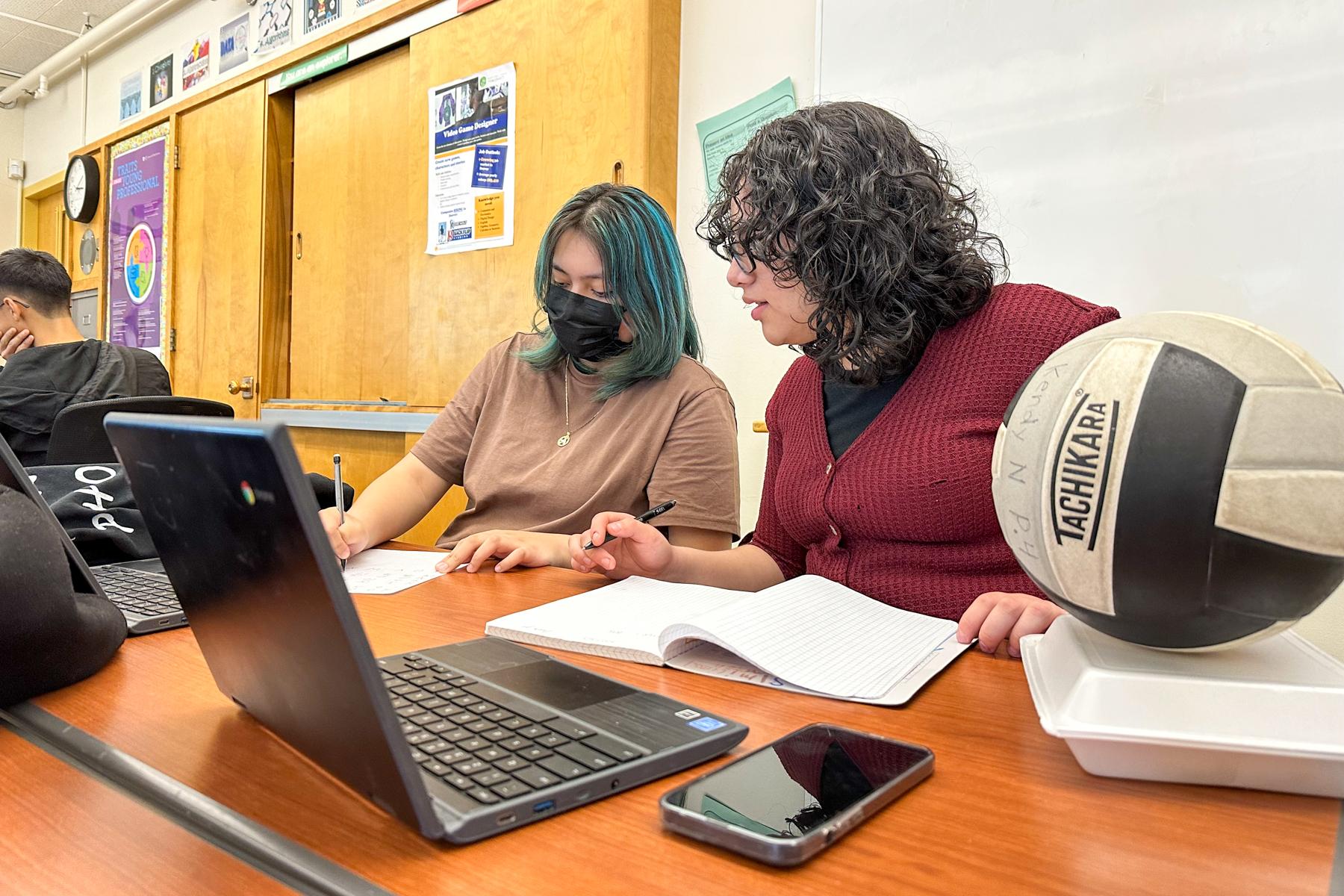
A program that aims to build artificial intelligence literacy among Colorado students and educators received a $3 million seed grant from the Colorado Office of Economic Development and International Trade. It’s one of 43 grants awarded Wednesday by Gov. Jared Polis in the second round of grants to prepare Coloradans for in-demand jobs.
Grants range from $40,000 to $4.5 million and come from $85 million in one-time federal COVID money.
The “Opportunity Now Colorado” grants stem from legislation passed in 2022 and support partnerships between industry and education to meet workforce needs in the state’s most in-demand industries, according to the governor’s office.
The program, called ElevateAI, plans to bring together industry, education training partners, and Colorado school districts to help meet state hiring needs in computer and math fields. Specifically, it also aims to equip teachers and students with skills in artificial intelligence.
ElevateAI is a collaboration between the Colorado Education Initiative, a nonprofit that partners with school districts on innovation, and SparkFun Electronics, which promotes electronics in education.
Rebecca Holmes, president and CEO of CEI said the explosion of AI that is reshaping life and work has school leaders looking to trusted voices for guidance.
“We want young people from all parts of Colorado to be prepared to not just work in but lead in industries that will absolutely be touched by AI in some way,” said Holmes. “We don't want only students who already have the most resources or the most resourced school districts to be the young people that are ready for that future world.”
CEI launched an artificial intelligence committee in 2023 to identify policies and practices needed for AI in schools. It will produce a statewide plan this summer.

As part of the initiative, SparkFun hopes to provide mentoring with industry partners, develop student internships, job matching, and job placement.
"ElevateAI is not just about education; it's about shaping the future workforce to meet the needs of industries like ours,” said Jahnell Pereira, chief business development officer at SparkFun.
Because the federal government also recently designated Colorado as a Quantum Tech Hub, ElevateAI plans to explore integrating quantum computing into K-12 career pathways. Quantum computers would be exponentially faster and, in the future, could have many applications for medicine, energy sources, space navigation, or financial modeling.
Officials hope to use artificial intelligence to help reshape teaching by lessening administrative tasks, for example. One of the key components of the program is providing AI certification opportunities for educators and growing the pipeline of teachers and leaders with knowledge of AI.
Rural students in Texas and Colorado will benefit
The grant recipients awarded Wednesday focus on fields including healthcare, education, infrastructure and construction, and sectors like quantum, semiconductors, clean tech, and advanced manufacturing.
Forty-five percent of the funds will support recipients in rural Colorado. One is a collaboration between the South Central BOCES, a collaborative that serves 12 school districts in southern Colorado, and the Rural Schools Innovation Zone (RSIZ) of Texas, which serves five districts.
The grant will allow the organizations to create a framework for work-based learning in fields like construction and advanced manufacturing that can be replicated across districts.
Denille LePlatt, executive director of South Central BOCES, said Colorado will need 40,000 construction workers by 2027, especially electricians and plumbers.
“This partnership stands as a compelling testament to the dual benefits of investing in rural education, simultaneously catering to the aspirations of students and the demands of the workforce."
Other grants
DSST Public Schools received a $2 million grant to launch a program to build a more diverse charter school teacher pathway. One of the ideas is to create no-cost, job-embedded bachelor’s degrees through Reach University.
In early childhood education, Denver’s Mile High Early Learning received a $2.5 million grant to expand its training program to recruit and place early childhood educators. Most centers are experiencing a 42 percent turnover rate, and the state predicts a 33 percent to 43 percent increase in the need for early childhood educators through 2025.
The first 46 grant recipients were announced in June 2023. Collectively, 89 grant recipients are projected to serve 20,000 Coloradans.









